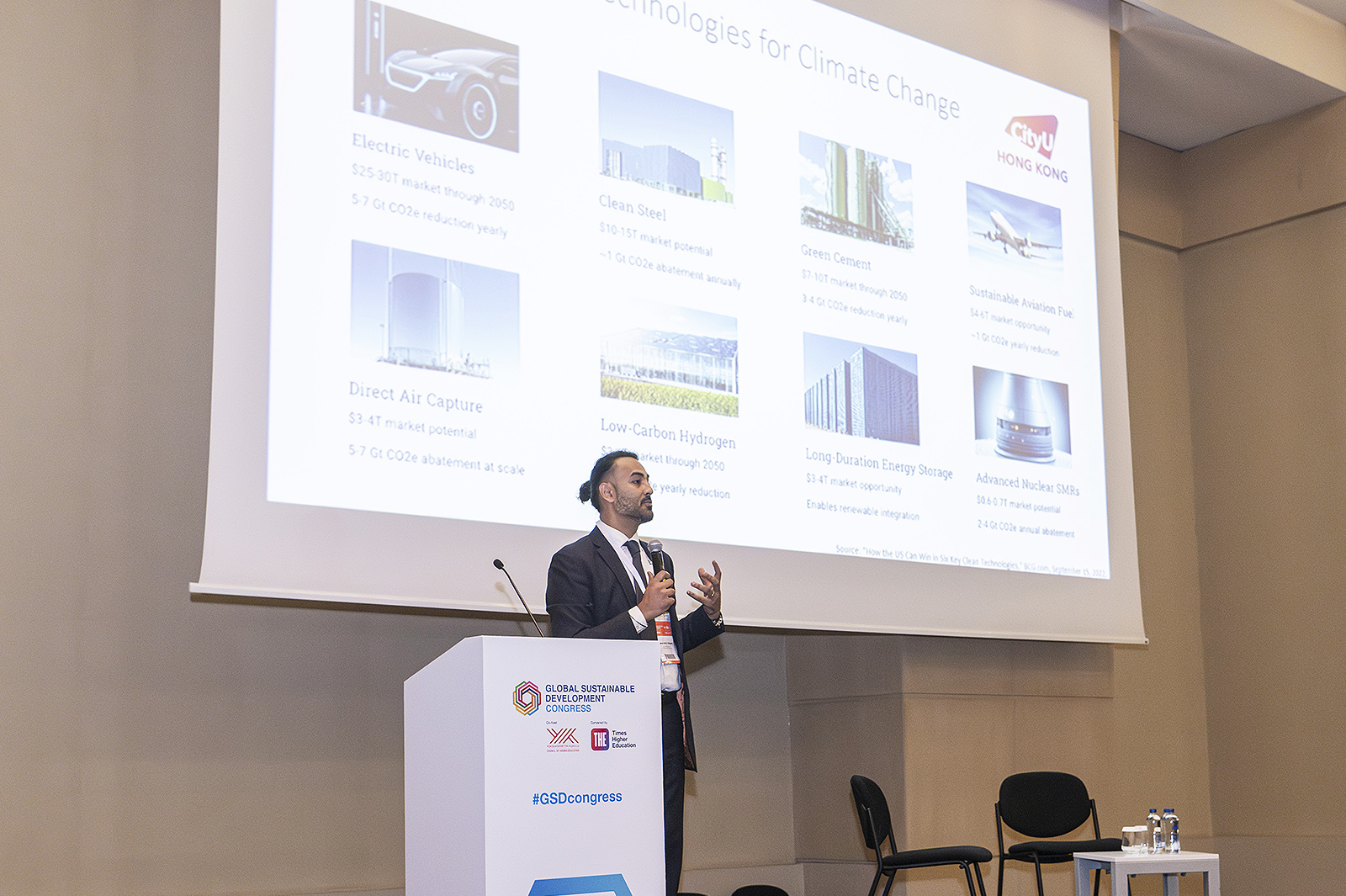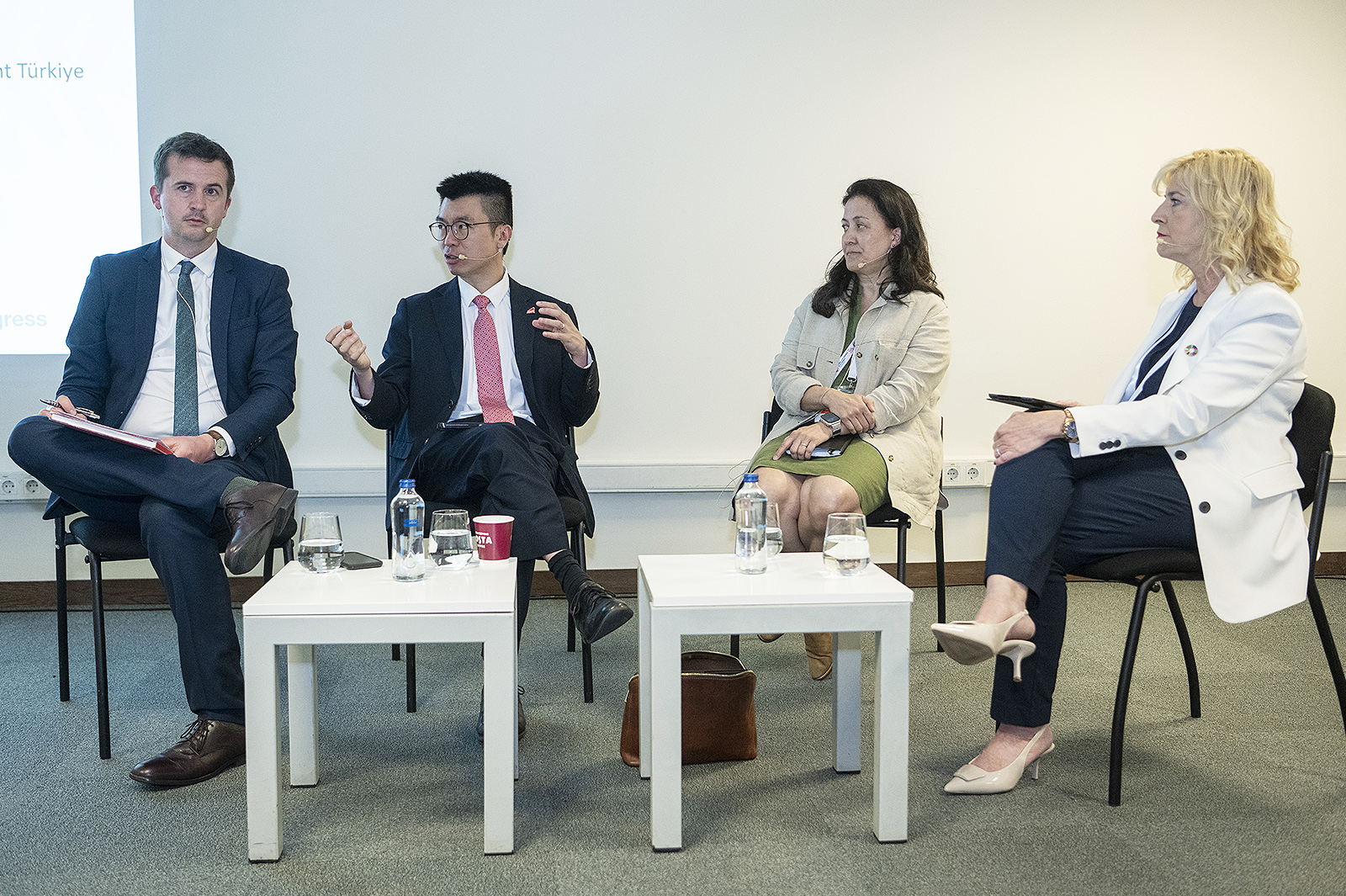Key drivers for advancing sustainable development – urban planning, collaboration, and leadership

Building towards a sustainable future must begin from the ground up, explained Professor Shauhrat Chopra of the School of Energy and Environment (SEE) at City University of Hong Kong (CityUHK) on day 2 of the Global Sustainable Development congress.
His talk spotlighted Hong Kong’s multi-modal transport system and how effective integrated infrastructure can enhance resilience and reduce emissions.
Titled “Investing in a sustainable future: Life cycle management for critical infrastructure”, this session demonstrated how infrastructure planning can lead to effective decarbonisation of urban spaces, while avoiding costly and climate-vulnerable investments.
“There are many new and exciting emerging technologies that drive forward sustainability. By applying life cycle thinking and picking context-specific solutions, we can maximise desirable functions while minimising undesirable hazards to ensure sustainable and responsible adoption,” he said.
Professor Benjamin Horton, Dean of the SEE, gave a rousing talk on the Impact Stage in the afternoon, addressing the urgent nature of climate change and how higher education, government, and private sectors must join hands to deal responsibly with Earth’s precious resources to create a sustainable society and promote social justice.
“This is a critical time. I believe climate change will define this century, and we must set aside geopolitical differences to create a sustainable world that lives within our boundaries before it is too late,” he urged, emphasising the profound impact climate change will have on the planet.
Professor Horton believes we must take action now before the critical tipping points are crossed, which would lead to accelerated and often irreversible changes to the climate system. In his talk, he highlighted case studies on passive cooling and nature-based solutions and stressed the importance of collaborating for a positive environmental impact.

To round out day 2, Professor Anderson Shum, Vice-President (Research), joined an elite panel of global sustainability leaders to discuss how leadership roles must become crucial driving forces towards achieving the Sustainable Development Goals (SDGs) targets by 2030. Titled: “Beyond 2030: Leading with long-term vision”, the panel explored ways to lead holistically while maintaining a forward-looking mindset to address global issues.
President Shum spoke on the importance of maintaining cross-industry communication and collaboration, highlighting CityUHK initiatives such as HK Tech 300 as ways academic institutes can leverage their research strengths to create innovative and sustainable solutions. He emphasised that leaders must prove themselves through actions by reaching out and building effective, equitable partnerships.
“As leaders, we must take a more adaptive leadership style and make a tangible difference. It’s important to align short-term interests with long-term goals and harness partnerships that share the same mission and vision and create synergy in sustainable development,” he said, emphasising that leaders must maintain an open and transparent approach to engaging with the local community and on the global stage.
“Rather than thinking of the SDGs as metrics to meet or checkmarks to tick off a list, we should think about them as conversations that hold us accountable to actions that lead to practical outcomes and encourage us to keep pushing for a greener world,” said Dr Roberta Malee Bassett, Global Lead for Tertiary Education, World Bank, who joined Professor Shum on this panel.
The other panelist, Ms Konca ?alk?vik, Executive Director of the Business Council for Sustainable Development, Türkiye, said sustainability had to be a long-term commitment, arguing that integrating SDGs into business strategies was a must as it increases resilience and trustworthiness.
“Many companies want to reach net zero, but don’t have proper transition plans. As part of the Business Council, our role is to create and issue roadmaps for businesses to engage in sustainable practices,” she said.
The panel also reviewed leadership strategies in the face of adversity, economic challenges, and geopolitical uncertainty, closing with a discussion on how current leaders must foster the next generation of young leaders to ensure intergenerational success.
Please visit the thematic website for more information about CityUHK sustainability experts sharing their insights at GSDC 2025.